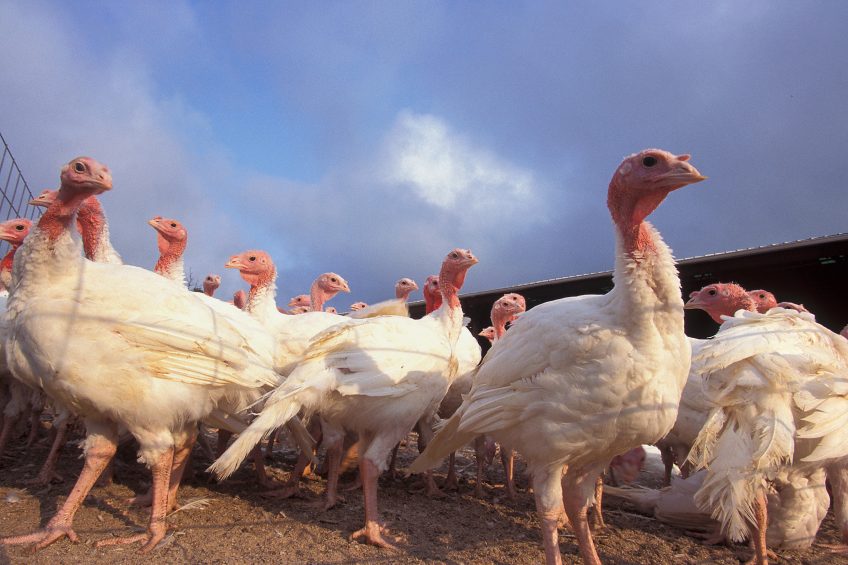Blackhead disease, which is also called histomoniasis, is a big problem in the turkey business because it can hurt the health and productivity of flocks. For turkey growers directly impacted by this health challenge, this article will help answer your questions on.
Blackhead disease, caused by the parasite Histomonas meleagridis, is an unfortunately common issue for backyard and commercial turkey flocks. But if your birds become infected, is it still safe to eat them? Or does blackhead make turkeys unsafe for consumption?
This comprehensive guide examines the risks, safety precautions and steps for properly using infected turkeys.
What is Blackhead Disease in Turkeys?
Blackhead disease earned its name from the darkened head region seen in some infected turkeys. But more reliable signs are:
- Listlessness and drooping wings
- Ruffled, unkempt feathers
- Diarrhea
- Swollen liver and cecum with lesions
The protozoan parasite H. meleagridis spreads through worm eggs shed in droppings. Once infected, mortality rates in turkeys often reach 70-100%.
Young turkeys usually die within days. Older birds develop problems slower but often waste away.
Can You Eat a Turkey With Blackhead Disease?
The short answer is yes, it is possible to safely eat turkeys infected with blackhead But special care must be taken first.
Key points if considering eating blackhead diseased birds:
-
Do not consume the liver. The parasite and lesions concentrate here. Removing and discarding the liver is essential.
-
Inspect thoroughly. Check the cecum, intestines and meat for signs of lesions or inflammation. Any compromised areas should also be discarded.
-
Cook thoroughly. Heat to an internal temperature of 165°F minimum to kill potential pathogens.
-
Limit use. Infected meat is riskier. It’s best for well-cooked dishes rather than say raw turkey use.
Overall the meat itself does not harbor the parasite once the liver is removed. But thoroughly inspecting and cooking the turkey provides an added safety margin.
Reasons You May opt Not to Eat an Infected Turkey
While it’s possible to safely consume blackhead infected turkeys, there are also good reasons you may choose not to:
-
Personal preference. Some simply opt not to eat any meat from a visibly sick bird.
-
Meat quality loss. Blackhead causes muscle and fat loss, negatively impacting quality and quantity.
-
Decreased nutrition. The parasitic infection reduces nutritive value of the meat.
-
Increased handling. More care and inspection is required compared to healthy birds.
-
Risk of other pathogens. Secondary infections are also common with blackhead.
-
Difficulty confirming the disease. Lab tests may be needed to differentiate blackhead from other illnesses.
Opting to discard infected birds altogether eliminates any risks and uncertainty.
Proper Handling of an Infected Turkey Carcass
If choosing not to eat the turkey, properly disposing of the diseased carcass is crucial. Here are the safest methods:
-
Burning or incinerating – Ensures complete destruction of all potential pathogens.
-
Burial – Dig a 3-4 foot hole away from vegetable gardens to prevent disease spread. Cover with lime before filling.
-
Composting – Compost at high temperatures (140°F+) to kill pathogens before applying finished compost.
-
Sealed landfill disposal – Double bag carcasses before placing in an approved landfill’s covered trash area.
Never discard infected carcasses openly, as scavengers can further spread disease. Use one of these techniques for safe handling.
FAQs About Eating Turkeys With Blackhead
For those dealing with blackhead disease, there are likely still some lingering questions around safety:
Can you eat a turkey with blackhead disease if you cook it thoroughly?
Yes, provided the liver is removed, the meat is inspected, and it’s cooked to 165°F minimum internally. Proper cooking kills any pathogens.
What happens if you eat a turkey with blackhead disease?
Consuming the liver of an infected turkey could lead to intestinal issues or diarrhea. But meat without the liver, if thoroughly cooked, should pose no risks.
Can blackhead disease transmit to humans?
There are no documented cases of humans being infected by the H. meleagridis parasite that causes turkey blackhead disease. It cannot be directly passed to people.
Is the meat ruined if only a few turkeys are sick out of the flock?
If the condition is caught early and isolated, healthy flockmates could still be consumed, assuming normal inspection and cooking.
Can turkey meat look normal but still have blackhead disease?
Yes, in early cases the meat may appear normal. This is why careful inspection of the liver, cecum and intestines is so important.
Conclusion
Dealing with blackhead disease in your flock can be disheartening. But even infected birds may be safely consumed if proper precautions are followed. Yet there are also understandable reasons to opt for discarding them altogether. If consuming infected meat, be vigilant in your prep steps. And always handle and dispose of any unusable carcasses appropriately to avoid further disease spread.

What is Blackhead Disease?
Affected birds may exhibit vulture-like appearance due to the chronic wasting nature of the disease. They will have empty crops and display weakness from the decrease in absorption of nutrients and energy. Their heads and wings may also hang down, their eyes may be closed, their feathers may be ruffled, and their poop may be sulfur-colored. The thickening of the cecal wall, often with the formation of a cecal core, and spots on the liver are clear signs of blackhead disease. Depending on the rate of transmission in your flock, farmers may see mortality ranging from 5-100%. Though Blackhead disease occurs in chickens , it often is much more devastating for turkey operations.
